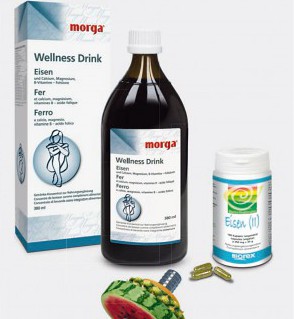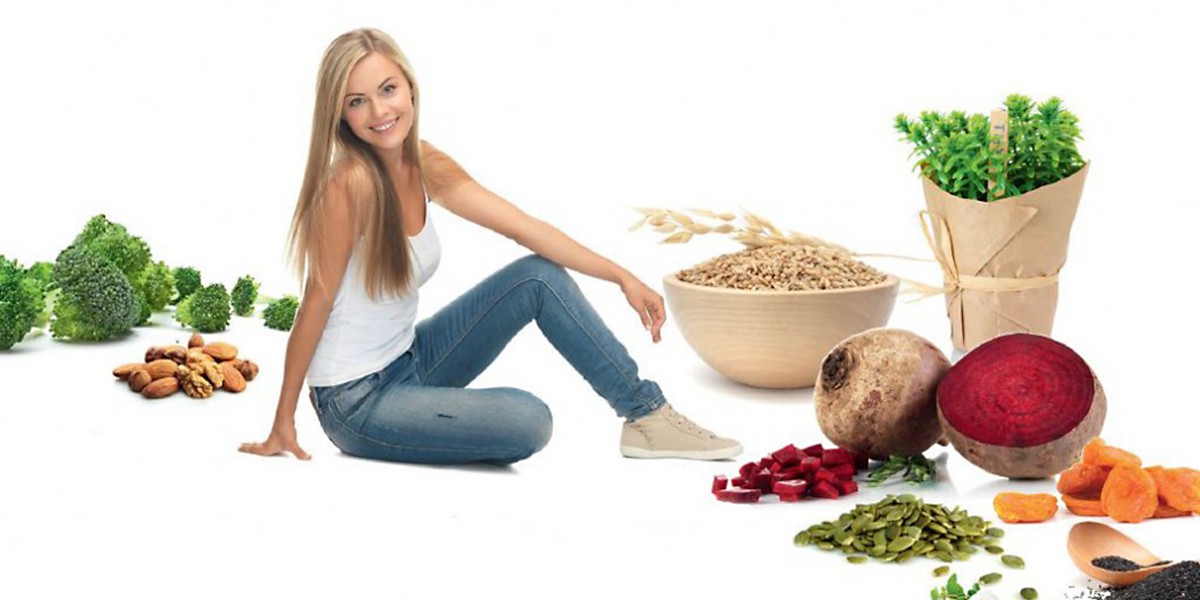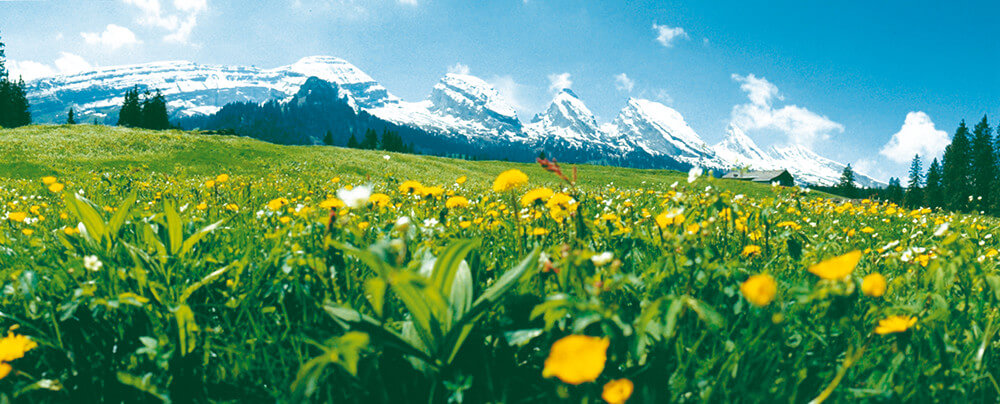Iron fulfills an important function in our body.
It is a component of the red blood pigment hemoglobin as well as the muscle pigment myoglobin and as such is responsible for transport of oxygen in blood and storage of oxygen in the musculature. Anybody can basically suffer from an iron deficiency. Some groups of people have more of a risk due to their elevated demand. This includes women in child-bearing age due to menstruation, pregnant and nursing women, female youths and athletes. An iron deficiency normally does not develop any more frequently with a vegan or vegetarian diet than with non-vegetarians, since vegans and vegetarians consume a larger amount of plant-based foods.
What are the signs of iron deficiency?
The initial symptoms of iron deficiency can be fatigue and lack of energy since the body’s cells need iron to gain energy. Weak concentration and performance problems as well as hair loss can also be indications for an iron deficiency. If too little iron is delivered by the diet, the organism utilizes the iron storage, the so-called ferritin, in case of a deficiency. A diet-caused iron deficiency therefore is not immediately noticed, not until symptoms such as paleness, headaches and dizziness develop.
Iron is in two forms in a person’s diet: As heme iron in red meat or as the less-usable non-heme iron or ionic iron in plant-based foods. Although heme iron is absorbed by the body easier, the resorption from plant-based foods is promoted by vitamin C or citric acid in such a way that the results are the same. Other combinations, such as phytic acid, oxalic acid, tannins, calcium and phosphate can reduce absorption of iron on the other hand. Vegetarians in particular should not drink coffee or black tea with or after meals for that reason. The body’s own regulation system can to a certain extent balance irregular intake and absorption by building up- and using the iron storage. Iron is vitally important; too high a dosage must however be avoided.

Eating properly
The best preventive measure against iron deficiency is a balanced diet with a high ratio of fresh products. The following are foods with good iron values: Amaranth, quinoa, millet, oatmeal, rye bread, legumes, soya granulate, tofu, red beets, carrots, zucchini, pumpkin seeds, sesame- and flax seeds, almonds, hazelnuts and dried fruits. Spices and dried herbs such as stinging nettles, thyme, cardamom, parsley and peppermint also contain abundant amounts of iron in dried condition and provide variety in meals.
The daily requirement of iron can be covered naturally by selecting the right foods. MORGA, the specialist for a vegetarian balanced diet recommends the following products:
- Holle amaranth
- Quinoa
- Gold millet
- Oatmeal
- Holle legumes
- Soya granulate and cubes as meat alternative
- Holle pumpkin seeds, sesame seeds, flax seeds
- ISSRO nuts and dried fruits
- Holle Wellness Drink with iron
- Morga iron vegicaps





